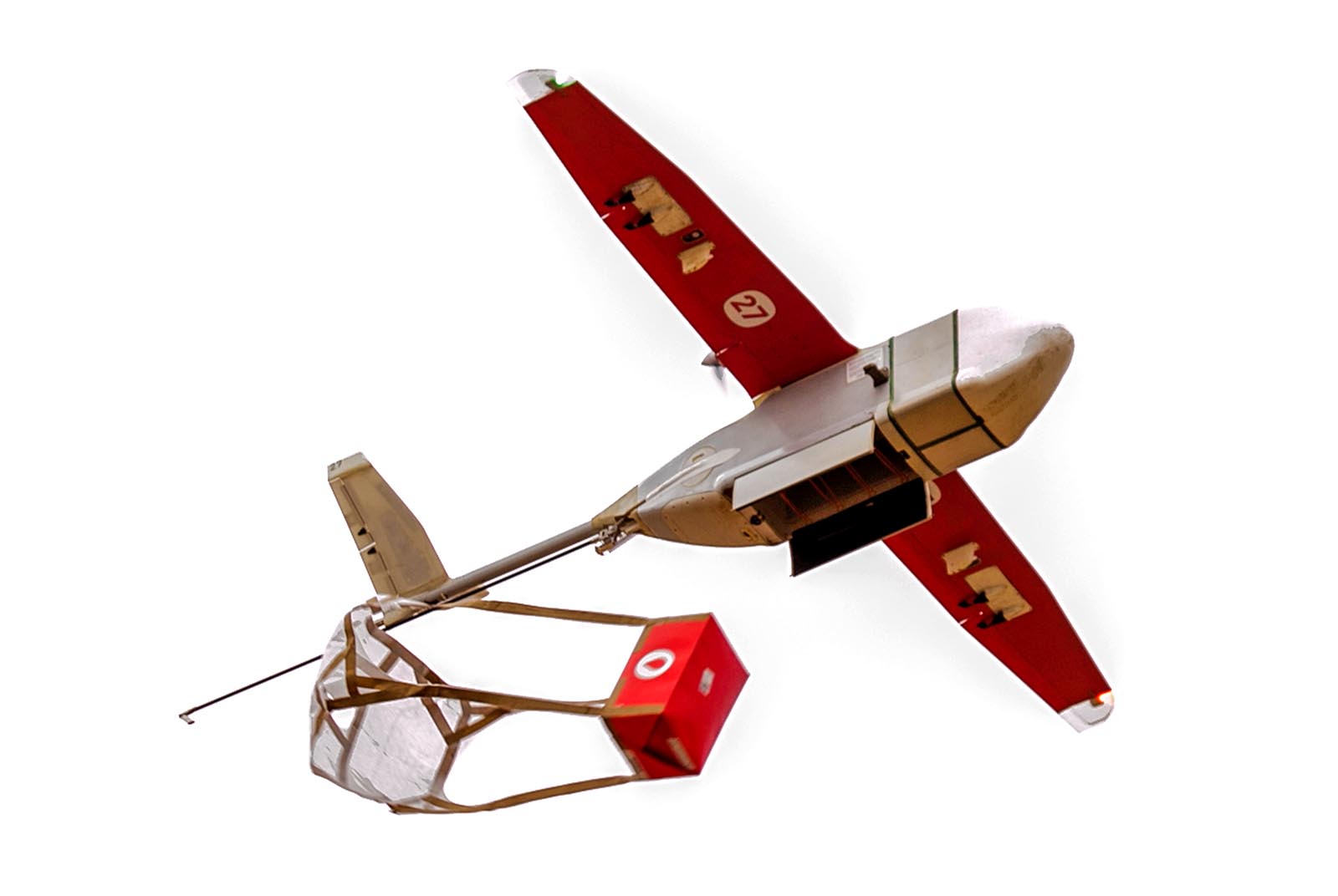Drones, Smartphones, and the Future of Health

A drone releases a blood package over Muhanga District in southern Rwanda in 2017. Many of the biggest challenges in health care delivery are being developed in the field.
Photo: Cyril Ndegeya/AFP/Getty Images
This piece is the first in a week-long series on the workplace of the future.
Discussion of innovation and public health all too often focuses on R&D for new medicines. However, health innovation doesn’t happen only in the pharma labs of rich countries.
Many of the biggest health challenges are practical, on-the-ground problems that are well suited to practical, innovative solutions developed in the field. We recently released a report, Innovate4Health, which profiles 25 innovations providing practical, affordable solutions to the world’s health challenges. Our research, focused on innovation close to the point of delivery in developing countries, found entrepreneurs tackling practical problems that bedevil healthcare delivery everywhere.
Our research shows not only that healthcare innovation can happen anywhere, but that the ideas flow both ways between the Northern and Southern hemispheres. While some health problems in developing countries are distinct, the maladies affecting the citizens of the developing and developed world are increasingly similar. For instance, by 2020, non–communicable diseases such as cardiovascular disease and diabetes will account for 70 percent of fatalities in developing countries.
It is important to note the role of intellectual property rights in supporting the ability of innovators to invent and bring solutions to market. In almost every instance, the innovations in our case studies are secured by these rights. While IP systems in many countries are far from perfect, the security of at least some IP rights goes a long way to helping transform clever ideas into life-saving products.
Not Enough Experts
One of the world’s biggest challenges is lack of access to healthcare—not primarily because it’s too expensive, but because it is simply inaccessible. For one thing, there aren’t enough trained health care professionals to go around.
Reports estimate a shortage of trained health professionals is causing as many as 1 billion people to lack essential health care. A 2014 World Health Organization report found a global shortage of 7 million public healthcare workers, with that number expected to rise to 13 million by 2035.
The challenge is even more daunting when it comes to specialists. For instance, Cameroon has fewer than 50 cardiologists supporting a population of nearly 25 million citizens. And Ethiopia, a country of some 105 million-plus citizens, is served by a single radiation treatment center, located in the capital of Addis Ababa.
Innovators are tackling basic logistical problems in health care—and transforming how people access infrastructure in the developing world.
So entrepreneurs are tackling this problem by bringing healthcare to people where they are.
In wealthier countries, people visit doctors who use bulky, expensive equipment. That model of delivery does not work as well in the developing world. With this challenge in mind, the Cardio-Pad was developed by Arthur Zang, a 29-year-old Cameroonian engineer, to monitor heart health in the field. Similarly, the PEEK eye exam kit, a simple smartphone attachment, can duplicate much of what would be done in an optometrist’s office. Trained technicians can use this portable equipment wherever it’s needed and transmit results back to doctors.
Ingenious Ways to Deliver Health
In other instances, innovators are tackling basic logistical problems in health care delivery. For instance, vaccines typically need to be kept at a stable, cold temperature or they will spoil. This requirement is a real challenge in much of the world—a recent study from India found that 76 percent of vaccines failed quality testing due to mishandling.
To address this problem, innovators created a vaccine cooler that keeps vaccines between zero and eight degrees Celsius for 30 to 60 days using only the initial fill of ice. It has played a transformational role in helping ensure vaccines can reach children throughout the developing world.
Some health care delivery challenges are even more basic, as many people live in remote locations. The Rwandan government has teamed with the startup Zipline to facilitate drone-based delivery of urgent medical supplies, such as blood or vaccines, to patients in remote locations. Zipline’s drones serve 21 Rwandan hospitals nationwide, providing instant access to life-saving blood products for more than 8 million of the country’s 12 million residents.
Adapting to Harsh Climates
Another challenge and opportunity in emerging markets is adapting medical equipment to difficult environments. In places where electricity is unreliable or unavailable, essential medical devices just don’t work. The Embrace Infant Warmer is essentially a high-tech insulated blanket that provides an affordable and reliable way to save premature infants. Similarly the FREO2—Siphon oxygen machine provides patients with oxygen using water pressure rather than electricity. Such clever fixes can save hundreds of millions of lives while opening vast new markets.
The Importance of IP
The marriage of technology, intellectual property, and innovation is contributing to economic growth and the development of regional high-tech clusters. Zang, the Cardio-Pad developer, launched a company in Cameroon leveraging the expertise he gained developing the device into related medical equipment such as EEG machines. Himore Medical hopes its low-cost medical device solutions will become the center of a Cameroon-based medical device tech cluster.
The difficulties facing patients in emerging markets are vast, but clever innovators like Zang are building companies—and saving lives—by serving these previously neglected markets.







